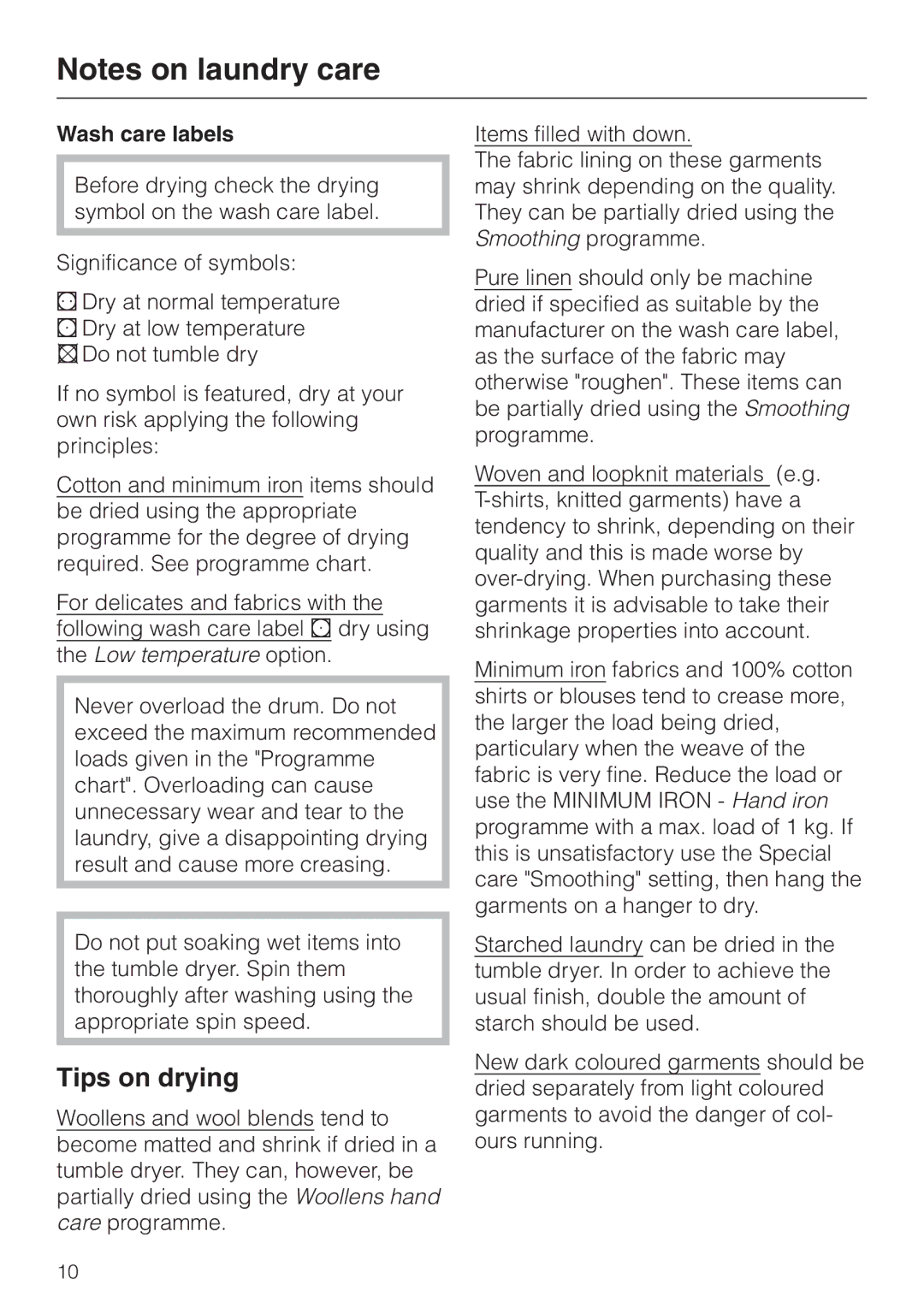
Notes on laundry care
Wash care labels
Before drying check the drying symbol on the wash care label.
Significance of symbols:
qDry at normal temperature rDry at low temperature sDo not tumble dry
If no symbol is featured, dry at your own risk applying the following principles:
Cotton and minimum iron items should be dried using the appropriate programme for the degree of drying required. See programme chart.
For delicates and fabrics with the following wash care label r dry using the Low temperature option.
Never overload the drum. Do not exceed the maximum recommended loads given in the "Programme chart". Overloading can cause unnecessary wear and tear to the laundry, give a disappointing drying result and cause more creasing.
Do not put soaking wet items into the tumble dryer. Spin them thoroughly after washing using the appropriate spin speed.
Tips on drying
Woollens and wool blends tend to become matted and shrink if dried in a tumble dryer. They can, however, be partially dried using the Woollens hand care programme.
Items filled with down.
The fabric lining on these garments may shrink depending on the quality. They can be partially dried using the Smoothing programme.
Pure linen should only be machine dried if specified as suitable by the manufacturer on the wash care label, as the surface of the fabric may otherwise "roughen". These items can be partially dried using the Smoothing programme.
Woven and loopknit materials (e.g.
Minimum iron fabrics and 100% cotton shirts or blouses tend to crease more, the larger the load being dried, particulary when the weave of the fabric is very fine. Reduce the load or use the MINIMUM IRON - Hand iron programme with a max. load of 1 kg. If this is unsatisfactory use the Special care "Smoothing" setting, then hang the garments on a hanger to dry.
Starched laundry can be dried in the tumble dryer. In order to achieve the usual finish, double the amount of starch should be used.
New dark coloured garments should be dried separately from light coloured garments to avoid the danger of col- ours running.
10
